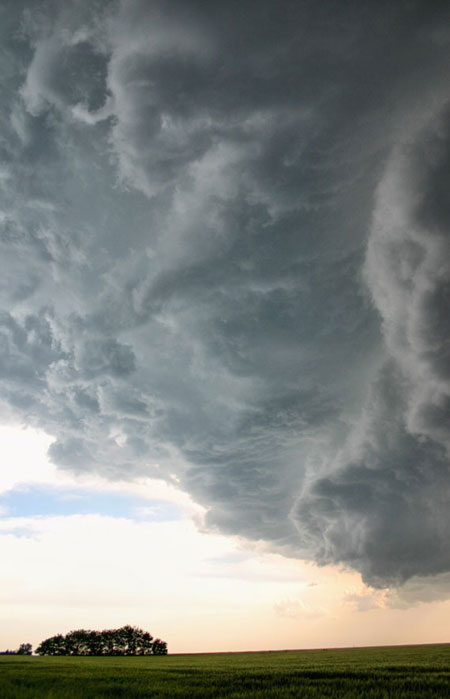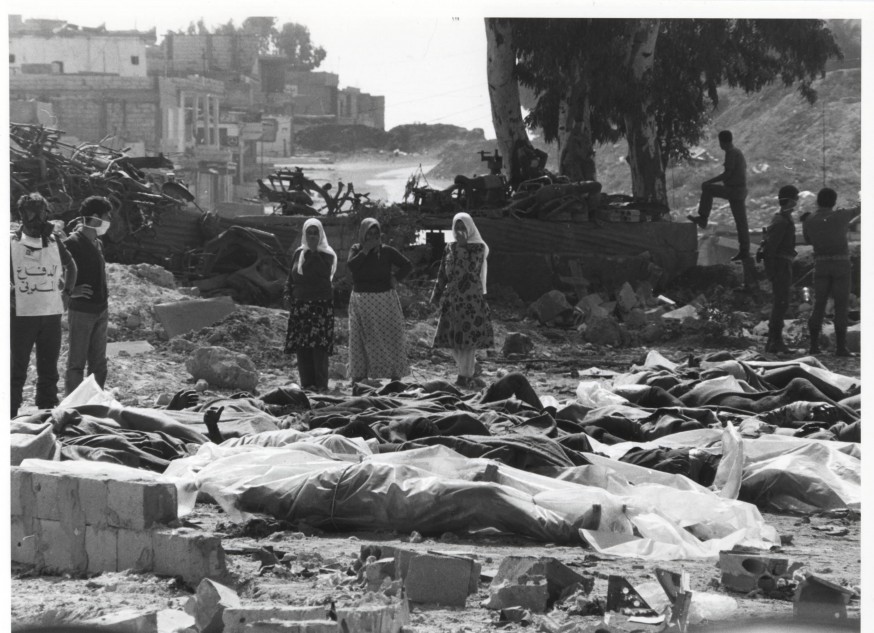Title : Sabra & Shatila Massacre: Lebanon,Christian Phalange/Kataeb, Ariel Sharon & the IDF
link : Sabra & Shatila Massacre: Lebanon,Christian Phalange/Kataeb, Ariel Sharon & the IDF
Sabra & Shatila Massacre: Lebanon,Christian Phalange/Kataeb, Ariel Sharon & the IDF
Be aware that history has a way of repeating. Particularly when so many actually too many are unaware of history. So much of it having disappeared down the 'memory hole' |
| disappearing the past |
A memory hole is any mechanism for the deliberate alteration or disappearance of inconvenient or embarrassing documents, photographs, transcripts or other records, such as from a website or other archive, particularly as part of an attempt to give the impression that something never happened.[1][2] The concept was first popularized by George Orwell's 1949 dystopian novel Nineteen Eighty-Four, where the Party's Ministry of Truth systematically re-created all potentially embarrassing historical documents, in effect, re-writing all of history to match the often-changing state propaganda. These changes were complete and undetectable.Noticing that Christian MP’s are resigning in Lebanon present time- As they "move to confrontation" This party has a grotesque, mostly forgoten history of allying with Israel.
I’m referencing the rebranded Phalangists, now known as Kataeb.
 |
| Not to be devoured by flame |
Link
The Kataeb MPs have decided... to move to confrontation for the sake of a free, sovereign, independent Lebanon...I invite all honourable (lawmakers) to resign so that the people can decide who will govern them, without anybody imposing anything to them," party chief Samy Gemayel announced.Sabra and Shatila:
Nadim Gemayel, Elias Hankach and Samy Gemayel were the only three members of parliament representing the Christian Kataeb Party, also known as the Phalange. The party opposes the government, which is supported by Iran-backed Hezbollah. Together with its allies, Hezbollah holds a majority in the 128-seat parliament, which was elected in 2018.
On September 16, 1982, following the Israeli invasion of Lebanon, the right-wing Christian Phalange militia stormed the Sabra and Shatila refugee camps in West Beirut and began a massacre which ended in the deaths of hundreds, maybe thousands, of mostly Palestinian civilians. I was 19 years old at the time. By chance and by luck I managed to survive. My mother and five younger sisters and brothers; and my uncle, his wife and eight kids did not.
Israel's invasion began June 6, 1982. After much destruction, the Palestine Liberation Organization (PLO), which had defended the camps since its inception, agreed to leave Lebanon in August. They were given American assurances that civilians left behind would be protected. The president-elect of Lebanon, and the leader of the Phalange, was assassinated on September 14th. The Israeli army proceeded to invade and occupy West Beirut.
Israeli troops surrounded the camps to prevent the refugees from leaving and allowed entry of the Phalange, a known enemy of the Palestinians. The Israelis fired flares throughout the night to light up the killing field - thus allowing the militiamen to see their way through the narrow alleys of the camps. The massacre went on for two days. As the bloodbath concluded, Israel supplied the bulldozers to dig mass graves. In 1983, Israel's investigative Kahan Commission found that Ariel Sharon, the Israeli Defense Minister, bore "personal responsibility" for the slaughter.
The massacre at Sabra and Shatila was a direct consequence of Israel's violation of the American-brokered ceasefire and the impunity bestowed on Israel by the US and the international community. This tragic anniversary is a reminder that the international community continues to fail to hold Israel accountable for its violations of international law and to defend the basic human rights of the Palestinian people.Sabra and Shatila Massacre
On September 16, 1982, Christian Lebanese militiamen allied to Israel entered the Palestinian refugee camp of Shatila and the adjacent neighborhood of Sabra in Beirut under the watch of the Israeli army and began a slaughter that caused outrage around the world. Over the next day and a half, up to 3500 Palestinian and Lebanese civilians, mostly women, children, and the elderly, were murdered in one of the worst atrocities in modern Middle Eastern history
Lead Up
On June 6, 1982, Israel launched a massive invasion of Lebanon. It had been long planned by Israeli Defense Minister Ariel Sharon, who wanted to destroy or severely diminish the Palestine Liberation Organization, which was based in Lebanon at the time. Sharon also planned to install a puppet government headed by Israel's right-wing Lebanese Christian Maronite allies, the Phalangist Party.
Israeli forces advanced all the way to the capital of Beirut, besieging and bombarding the western part of city, where the PLO was headquartered and the Palestinian refugee camp of Shatila and the adjacent neighborhood of Sabra are located.
Israel's bloody week long assault on West Beirut in August prompted harsh international criticism, including from the administration of US President Ronald Reagan, who many accused of giving a "green light" to Israel to launch the invasion. Under a US-brokered ceasefire agreement, PLO leaders and more than 14,000 fighters were to be evacuated from the country, with the US providing written assurances for the safety of hundreds of thousands of Palestinian civilians left behind. US Marines were deployed as part of a multinational force to oversee and provide security for the evacuation.
On August 30, PLO Chairman Yasser Arafat left Beirut along with the remainder of the Palestinian fighters based in the city.
On September 10, the Marines left Beirut. Four days later, on September 14, the leader of Israel's Phalangist allies, Bashir Gemayel, was assassinated. Gemayel had just been elected president of Lebanon by the Lebanese parliament, under the supervision of the occupying Israeli army. His death was a severe blow to Israel's designs for the country. The following day, Israeli forces violated the ceasefire agreement, moving into and occupying West Beirut.
The Massacre
On Wednesday, September 15, the Israeli army surrounded the Palestinian refugee camp of Shatila and the adjacent neighborhood of Sabra in West Beirut. The next day, September 16, Israeli soldiers allowed about 150 Phalangist militiamen into Sabra and Shatila.
The Phalange, known for their brutality and a history of atrocities against Palestinian civilians, were bitter enemies of the PLO and its leftist and Muslim Lebanese allies during the preceding years of Lebanon's civil war. The enraged Phalangist militiamen believed, erroneously, that Phalange leader Gemayel had been assassinated by Palestinians. He was actually killed by a Syrian agent.
Over the next day and a half, the Phalangists committed unspeakable atrocities, raping, mutilating, and murdering as many as 3500 Palestinian and Lebanese civilians, most of them women, children, and the elderly. Sharon would later claim that he could have had no way of knowing that the Phalange would harm civilians, however when US diplomats demanded to know why Israel had broken the ceasefire and entered West Beirut, Israeli army Chief of Staff Rafael Eitan justified the move saying it was "to prevent a Phalangist frenzy of revenge." On September 15, the day before the massacre began, Israeli Prime Minister Menachem Begin told US envoy Morris Draper that the Israelis had to occupy West Beirut, "Otherwise, there could be pogroms."
Almost immediately after the killing started, Israeli soldiers surrounding Sabra and Shatila became aware that civilians were being murdered, but did nothing to stop it. Instead, Israeli forces fired flares into the night sky to illuminate the darkness for the Phalangists, allowed reinforcements to enter the area on the second day of the massacre, and provided bulldozers that were used to dispose of the bodies of many of the victims.
 |
| ominous |
On the second day, Friday, September 17, an Israeli journalist in Lebanon called Defense Minister Sharon to inform him of reports that a massacre was taking place in Sabra and Shatila. The journalist, Ron Ben-Yishai, later recalled:
'I found [Sharon] at home sleeping. He woke up and I told him "Listen, there are stories about killings and massacres in the camps. A lot of our officers know about it and tell me about it, and if they know it, the whole world will know about it. You can still stop it." I didn't know that the massacre actually started 24 hours earlier. I thought it started only then and I said to him "Look, we still have time to stop it. Do something about it." He didn't react."'
On Friday afternoon, almost 24 hours after the killing began, Eitan met with Phalangist representatives. According to notes taken by an Israeli intelligence officer present: "[Eitan] expressed his positive impression received from the statement by the Phalangist forces and their behavior in the field," telling them to continue "mopping up the empty camps south of Fakahani until tomorrow at 5:00 a.m., at which time they must stop their action due to American pressure."
On Saturday, American Envoy Morris Draper, sent a furious message to Sharon stating:
'You must stop the massacres. They are obscene. I have an officer in the camp counting the bodies. You ought to be ashamed. The situation is rotten and terrible. They are killing children. You are in absolute control of the area, and therefore responsible for the area.'
The Phalangists finally left the area at around 8 o'clock Saturday morning, taking many of the surviving men with them for interrogation at a soccer stadium. The interrogations were carried out with Israeli intelligence agents, who handed many of the captives back to the Phalange. Some of the men returned to the Phalange were later found executed.
I shudder to think about the reality of the situation in Lebanon. Likely poorly understood.
About an hour after the Phalangists departed Sabra and Shatila, the first journalists arrived on the scene and the first reports of what transpired began to reach the outside world.
The foothold Israel and the US already have in that nation. The appearance of that worm, Macron. A strong feeling of foreboding has taken hold of me.
If you haven't noticed Hezbollah is being heavily demonized.
PennyAugust 7, 2020 at 2:39 PMI'm not personally buying into the 'projectile" story.
It's just not necessary, in my opinion.
What it looks like to me.. is that Hezbollah is going to be framed and blamed- just by casting aspersion on them.
Look around at the headlines
Lebanon’s Hezbollah Denies It Had Stashed Weapons at Beirut Port
https://ift.tt/2DPMvRi
the idea is planted in the minds of the masses- Hezbollah had weapons stashed at the port- the denials will make no difference
"“We don’t have anything at the port, not weapons, missiles or ammunition or nitrate or anything else at all. Not now, not in the past or the future,” Hassan Nasrallah said in a televised speech."
Related
-
Lebanon: Cue the anti-government protestors (with lots of media coverage) as Macron calls for “reform”
-
Blast in Beirut- Birth Pangs
-
2017: With US Encouragement Will Saudi Arabia & Israel Escalate Regionally ?
Because I don't think Lebanon is the sole target here.
What party would not want to see cohesion in Lebanese politics? I'd say Israel had the most to lose from Lebanese cohesion, wouldn't you?
Thus Article Sabra & Shatila Massacre: Lebanon,Christian Phalange/Kataeb, Ariel Sharon & the IDF
That's an article Sabra & Shatila Massacre: Lebanon,Christian Phalange/Kataeb, Ariel Sharon & the IDF This time, hopefully can give benefits to all of you. well, see you in posting other articles.
You are now reading the article Sabra & Shatila Massacre: Lebanon,Christian Phalange/Kataeb, Ariel Sharon & the IDF with the link address https://janggalnews.blogspot.com/2020/08/sabra-shatila-massacre-lebanonchristian.html
